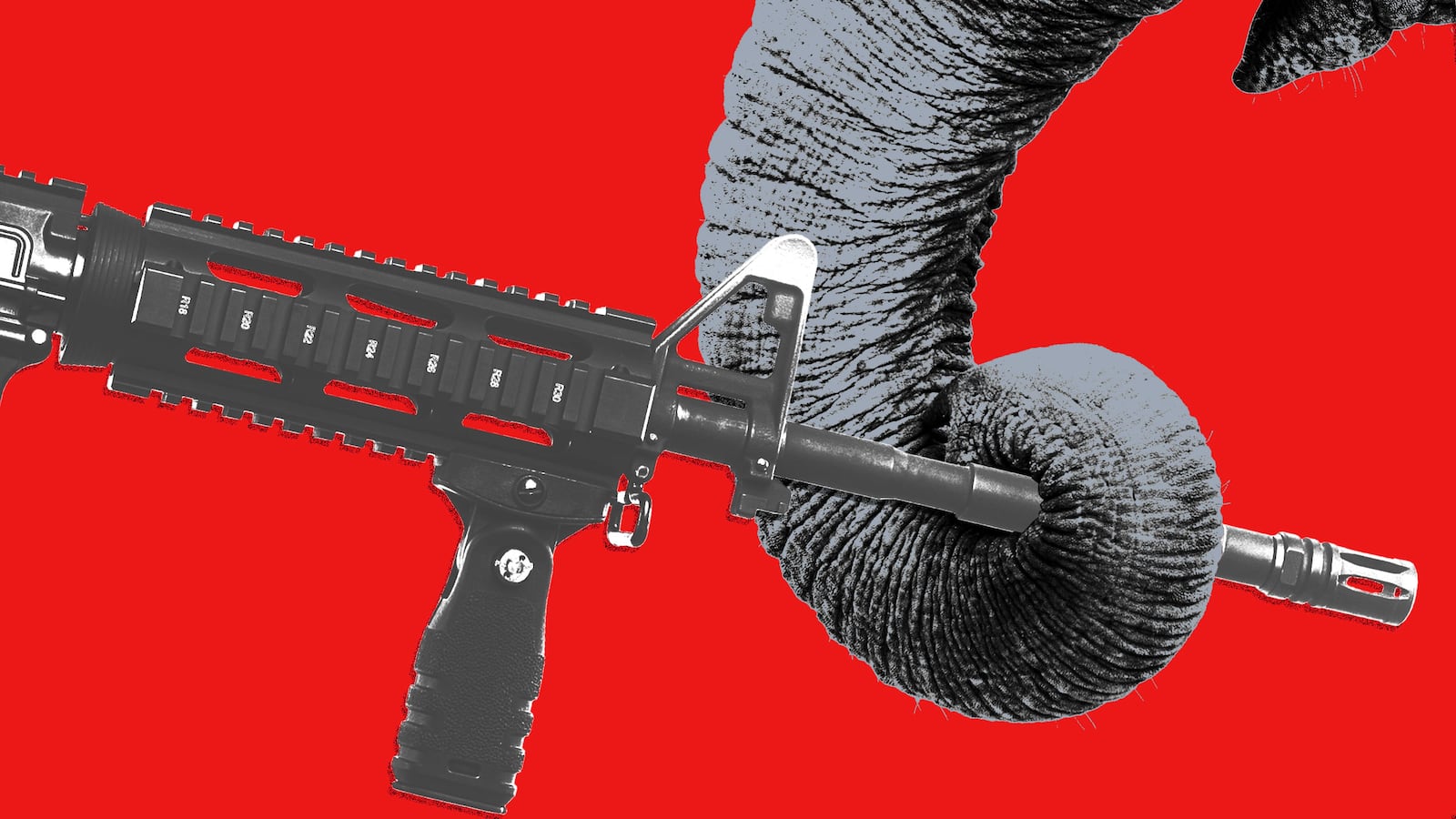Support for gun control is surging in the polls, and the owner of Dick’s Sporting Goods has announced that it will quit selling assault-style rifles and high-capacity magazines and will cease selling to anyone under the age of 21.
Meanwhile, Speaker Paul Ryan is signaling that Congress won’t do much regarding gun control.
If this prediction holds true (based on a closer reading of the transcript from his Tuesday press conference, I’m not sure that’s an entirely fair interpretation of Ryan’s comments; however, that’s the media narrative, and the smart bet with Congress is always toward stasis) it would be one more example of how our politicians are out of step with the public—a dangerous place to be.
Without getting into the moral and ethical questions surrounding Congress’ inaction, I think it’s worth asking: Would failing to act be the smart political move for conservatives who want to preserve our Second Amendment rights?
Two schools of thought exist: One says that it’s better to take proactive measures while you can. The second school of thought—the one that has dominated our politics for a long time now—says you should fight tooth-and-nail against any and every little change.
The first school of thought suggests that there is a potential “first-mover” advantage for those who are willing to make the occasional strategic retreat.
Let’s take the debate over gay marriage. For years, public opinion was on the side of traditional marriage. But the courts began to intervene, and public opinion dramatically swung in favor of gay marriage. There are, no doubt, numerous reasons for this. But one of the primary reasons had to do with the heartbreaking stories about injustices, such as someone being kept from a dying partner’s bedside.
Would this debate have played out differently had social conservatives fought for domestic partnerships in order to hold the line on redefining marriage? It’s impossible to know. But by failing to address the deeply emotional and legitimate concerns of the gay community, social conservatives inadvertently invited a swift backlash.
Another example of how failing to proactively endorse moderate reforms can lead to a devastating negative outcome has to do with Obamacare. Instead of (a) working with Democrats to craft a viable health care system or (b) crafting a conservative plan that could garner bipartisan votes and public support, Republicans adopted a solely oppositional strategy.
They were defeated. And then, once they finally won power in 2016, they were woefully unprepared to actually fix the problem. As a result, Democrats are now coalescing around the idea of a single-payer healthcare plan. Who knows if this plan will ever come into fruition, but what was once unthinkable is now a reasonable part of the political debate.
How does this relate to the current gun debate? Just as those who want to preserve capitalism must fear and resist the kind of massive income inequality that could one day lead to violent revolution, the biggest threat to the Second Amendment is another school shooting.
This brings us to the other school of thought—the one that has generally won the day in modern politics.
The view here is that compromise is for losers. Moderate concessions don’t pacify people, the theory goes. They only act as a slippery slope, emboldening your adversaries to advance through retreat and come back for moderate concessions later.
In terms of guns, some fear that even sensible compromise opens the door to mass registration and then gun confiscation—ultimately leading to the sort of authoritarian, dystopian future predicted by Wayne LaPierre.
In some cases, there is merit to the fear that small concessions will eventually lead to destruction. Take, for example, the systematic and incremental undermining of the cigarette industry. Advocates of gun rights might not like comparing firearms to tobacco, but the analogy serves as a stark warning. First came no smoking sections in restaurants (a modest concession). Then, restaurants banned smoking. Today, you’re basically a pariah if you light up (unless, of course, it’s marijuana, which is cool).
Both schools of thought have their merits, but I suspect the “don’t give an inch” theory is overrated.
Living life according to this premise creates serious hazards. Get ready to defend the indefensible on a perpetual basis. If conceding any restrictions on arms is a slippery slope to confiscation, then prepare to defend my right to own a rocket launcher, flamethrower, or automatic weapon. This inflexibility diminishes credibility and cedes the commonsense center of political debate.
Important observation: Slopes aren’t always slippery. As Jonah Goldberg has noted many times in his writing, America’s history has provided plenty of examples of A not inexorably leading us to B. Per Goldberg, one could assume that Japanese internment in the 1940s set us on the path to authoritarianism; it didn’t. Likewise, the McCarthy era of the 1950s could have been a similarly dangerous and slippery slope; it wasn’t. The pendulum swung back.
It’s unclear to me how the gun debate will ultimately play out. But I do think it’s worth noting that the safe move isn’t always to hunker down. I’m not convinced that requiring someone to turn 21 before they can purchase a rifle will lead to jack-booted thugs showing up at your door. Indeed, it’s just as likely that refusing to support any reforms is a much more dangerous stance.






